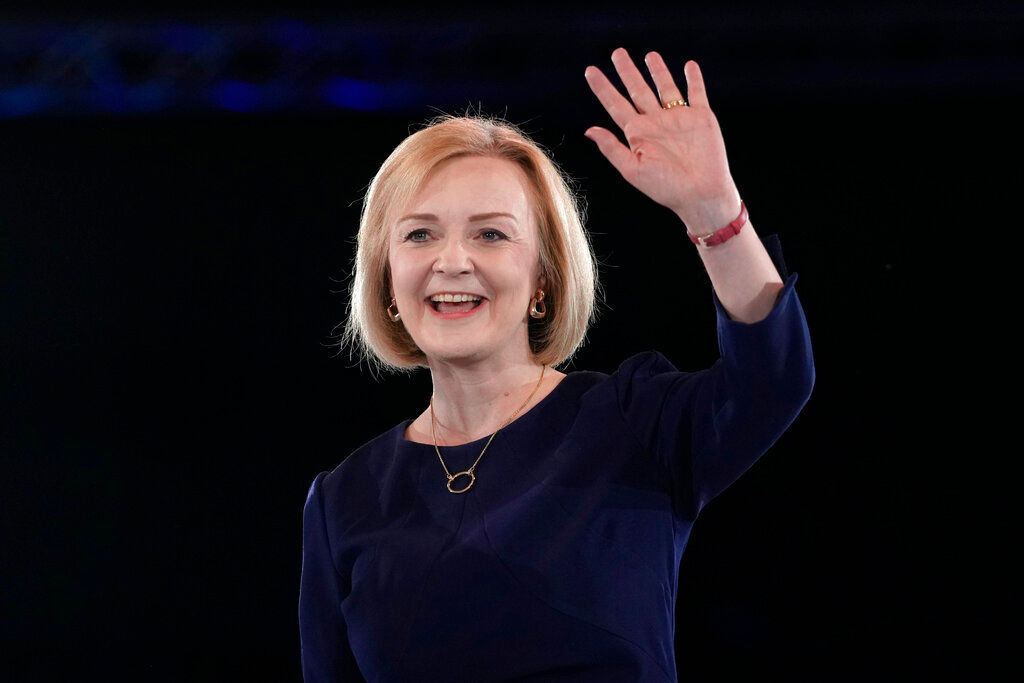After winning a leadership contest for the ruling Conservative party on Monday, Liz Truss will take office as Britain’s next prime minister. She has promised to move forward with tax reform promises and address a worsening energy issue.
Truss, who is presently the foreign minister, defeated former finance minister Rishi Sunak by 81,326 votes to 60,399 in a ballot among Conservative Party members following weeks of a contentious and frequently heated leadership race.
Also read: Jeremy Corbyn asks Liz Truss, new UK Prime Minister, to tackle cost-of-living crisis
After the verdict was announced, Truss declared, “I will deliver a bold plan to cut taxes and grow our economy. I will deliver on the energy crisis, dealing with people’s energy bills, but also dealing with the long-term issues we have on energy supply.”
As the nation deals with a cost-of-living crisis, industrial discontent, a recession, and a war in Europe—where Britain has been a key supporter of Ukraine—Truss assumes office. By claiming that she would secure a significant victory for her party in 2024, she appeared to rule out holding another national election for the next two years.
She succeeds Boris Johnson, whose forced retirement was announced in July as a result of months of controversy that caused support for his administration to collapse.
Also read: Unite behind the new PM, Liz Truss: Rishi Sunak after loss
Tuesday, he will be traveling to Scotland to present his resignation to Queen Elizabeth II. The monarch will then invite Truss to form a government, who will follow him to Balmoral.
Truss, who has long been the front-runner to succeed him, will become the fourth prime minister of the Conservative Party since the 2015 election. The nation has been tossed from crisis to crisis over that time, and now faces what is expected to be a protracted recession brought on by skyrocketing inflation, which reached 10.1% in July.
Truss, who served as Johnson’s foreign minister, has pledged to take swift action to address the rising cost of living crisis, claiming that within a week she will come up with a strategy to address rising energy costs and guarantee future fuel supply.
She made it clear throughout her bid for leadership that she would defy tradition by repealing tax rises and slashing other levies, a move that some economists fear will exacerbate inflation.
Also read: Liz Truss after becoming United Kingdom Prime Minister: We will deliver
This, together with a promise to examine the Bank of England’s mandate while preserving its independence, has pushed some investors to sell government bonds and the pound.
In an article published in the Financial Times on Monday, Kwasi Kwarteng, who is widely expected to serve as Truss’ finance minister, attempted to calm the markets by stating that while “some fiscal loosening” would be necessary under her leadership, her administration would still act in a “fiscally responsible way.”
After Truss’s victory, Kwarteng was asked if he would become finance minister. He indicated to Reuters that he wasn’t sure.
Opposition MPs claim that Truss’ lengthy, expensive, and challenging to-do list is the product of 12 years of ineffective Conservative rule. Many have demanded an early election, which Truss has stated she will not permit.
Also read: Labour Party keen to see Liz Truss tackle cost of living crisis as new prime minister
The issues she would face as prime minister were “probably the second most difficult brief of post-war prime ministers,” according to veteran Conservative legislator David Davis in 1979.
It may cost tens of billions of pounds, he claimed, adding that “I actually don’t think any of the candidates, not one of them going through it, really knows quite how big this is going to be.”
In lieu of what one source close to Truss described as a “presidential-style” of governance, Truss has promised to form a strong cabinet. However, she will need to put up a lot of effort to win over certain lawmakers in her party who had supported Sunak in the election.
The closest of any Conservative leadership contest in this century, her victory among party members was also the narrowest.
Also read: Congratulations pour in after Liz Truss wins Conservative Party elections
Because Truss was not the most well-liked candidate among her party’s lawmakers, the think tank Institute for Government predicted that she would have a weaker starting point than any of her predecessors.
She will start by addressing the pressing problem of rising energy prices. The average annual household power bill is scheduled to increase by 80% in October to 3,549 pounds, before rising to 6,000 pounds in 2023, which will have a devastating impact on people’s personal budgets.
The opposition MPs blame a “zombie” administration that was powerless to do anything while the Conservatives held their leadership election for the reason that Britain has trailed behind other major European nations in its offer of financial assistance for consumer energy costs.
Also read: Not ready for Rishi, Tories trust Truss as UK Prime Minister
The cost of living crisis, which is the most significant issue weighing on so many millions of households, has received considerably less attention from the most recent prime minister than tax cuts for corporations, according to opposition Labour Party leader Keir Starmer.
In May, the government announced a 37 billion pound cost-of-living support programme that included a 15 billion pound support package to assist people with energy bills.
Over 52 billion euros ($51.75 billion) have been allocated to Italy’s aid budget so far this year. A 4% restriction on power price hikes is in place in France, while Germany announced on Sunday that it would invest at least 65 billion euros to protect households and businesses from increasing inflation.







